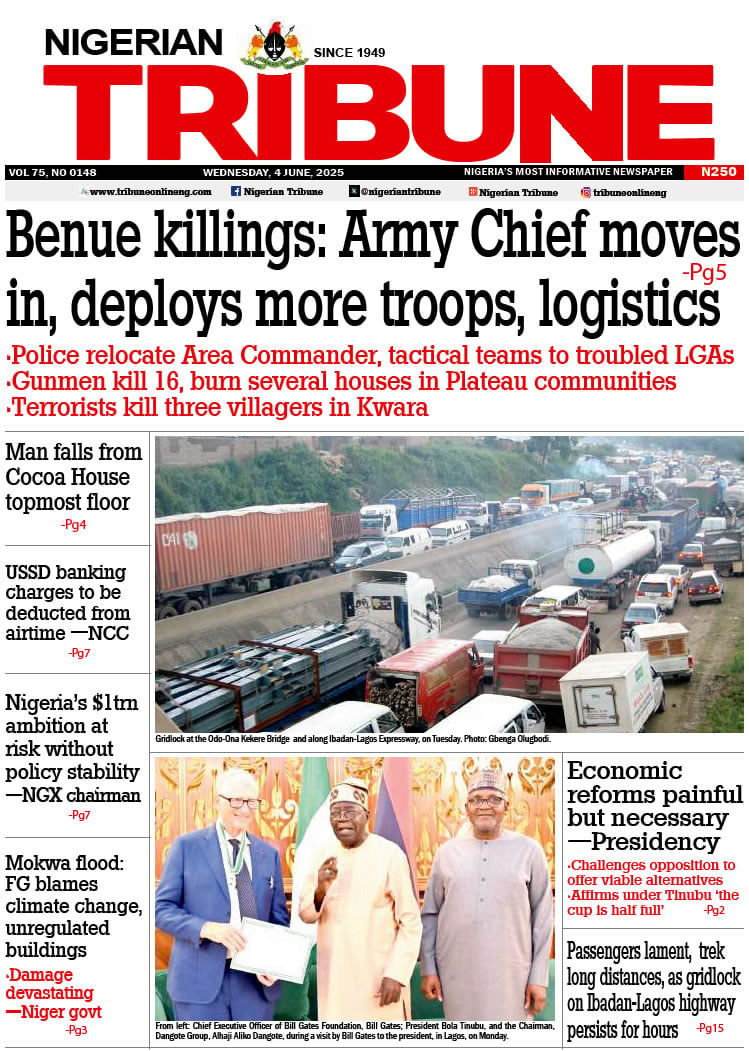Nigeria’s Minister of Foreign Affairs, Ambassador Yusuf M. Tuggar, has made a clarion call for the private sector to play a central role in unlocking Africa’s economic potential through intra-African trade. Speaking at the Private Sector Roundtable preceding the West Africa Economic Summit (WAES), held at the Metropolitan Club, Victoria Island, Lagos, Tuggar highlighted the urgent need for deeper economic integration across the continent.
Addressing an audience of business leaders, diplomats, and policymakers, Tuggar emphasised that Africa stands at a critical juncture — one where business is no longer a peripheral concern but a strategic pillar of regional policy and diplomacy.
“This is the period in which the voice of business is not merely recognised at the margins, but is systematically institutionalised within the core processes of policy formulation and regional economic diplomacy.
“It reflects a deeper entanglement of corporate interests and statecraft, wherein the private sector emerges not as a peripheral stakeholder but as a central architect of economic governance frameworks,” Tuggar stated.
While outlining the opportunities, the Minister also presented a stark picture of the current reality. Citing recent data, he revealed that intra-African trade accounts for only 15 percent of total trade on the continent, with the figure dropping to between 12 percent and 13 percent in West Africa. In contrast, intra-regional trade in Asia hovers around 60 percent, and Europe nears 70 percent, highlighting a significant gap.
Tuggar pointed out that the constraints to West Africa’s economic integration are not a matter of potential, but rather of practical shortcomings — infrastructure gaps, weak coordination, and a lack of sustained political commitment.
“The challenge lies not in envisioning a prosperous, interconnected region, but in establishing the institutional mechanisms, logistical frameworks, and governance consensus required to actualise that vision,” he said.
Nevertheless, he acknowledged progress in recent years, citing efforts such as the ECOWAS Trade Liberalisation Scheme, the Abidjan-Lagos and Abidjan-Dakar transport corridors, SIGMAT, the West African Power Pool, and the planned African-Atlantic Gas Pipeline.
“These are not just abstract ideas — they are West-African-led initiatives that will prove advantageous to businesses across the sub-region in the near future,” he affirmed.
Tuggar also expressed concern over rising global protectionism and the reordering of global tariff systems, noting that such developments make regional alignment even more essential.
“In a world witnessing protectionist tendencies from global market leaders, it is only right that neighbours and regional blocs align for the common good of their people.
“The West African response must be clear and deliberate, not reactionary and disjointed. That is why WAES is a timely and strategic platform,” he said.
WAES, scheduled for June 20–21, 2025, in Abuja, is a flagship initiative championed by Nigeria’s President and supported by other West African leaders. According to Tuggar, the Summit aims to shift the region from dependency to productivity, and from fragmented markets to integrated value chains.
“The idea is to use our size to generate efficient productivity in order to outcompete others in the global market,” he explained. “A broader West African market will drive down costs and enable our businesses to scale up and compete internationally.”
WAES is expected to bring together Heads of State, Ministers, investors, and key stakeholders from across West Africa, along with private sector leaders. The Minister underscored the importance of this inclusion, stating that business voices must directly influence policy decisions.
“When we succeed in integration, when we improve on policy predictability, secure property rights, and the effectiveness of contracts — investors will come,” Tuggar said. “This is the largest market on the continent, and it must be leveraged.”
He emphasized the need for candid conversations between the private sector and policymakers during WAES. “We’re bringing along the decision makers to hear directly from you — to understand the challenges, identify the low-hanging fruits, and even resolve some issues on the spot,” he said.
Tuggar urged participants not to underestimate the impact they could have. “Sometimes it just takes one phone call. We are serious about removing barriers to business so that commerce can thrive,” he said. “It’s not just about size, it’s about scale — the kind of scale West Africa provides.”
He commended Nigerian companies already operating across the sub-region — in banking, cement, fertilizer, fintech, and startups — as evidence that cross-border business is both viable and beneficial.
He concluded by reinforcing the collective nature of the challenge: “Let’s not forget — it’s not just Nigerian policymakers involved. Policymakers from other countries are also on board. Heads of State will be there. So let’s work together to resolve the problems and build an integrated, competitive West African economy.”
As anticipation builds ahead of the June 20–21 Summit in Abuja, Tuggar’s message was clear: the future of Africa’s economic strength lies in regional collaboration, and the private sector must lead the charge.
ALSO READ TOP STORIES FROM NIGERIAN TRIBUNE






